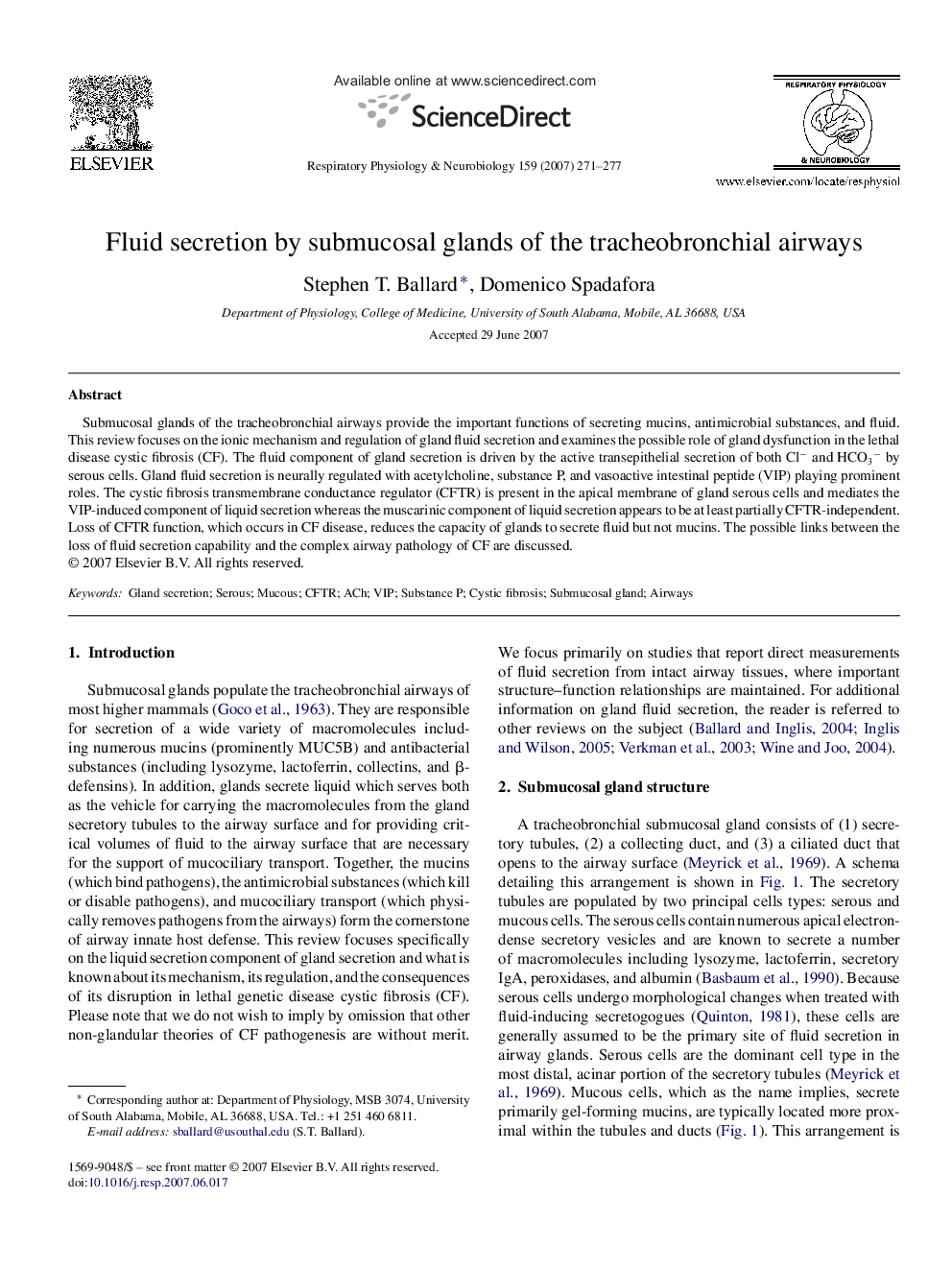| Article ID | Journal | Published Year | Pages | File Type |
|---|---|---|---|---|
| 2848214 | Respiratory Physiology & Neurobiology | 2007 | 7 Pages |
Submucosal glands of the tracheobronchial airways provide the important functions of secreting mucins, antimicrobial substances, and fluid. This review focuses on the ionic mechanism and regulation of gland fluid secretion and examines the possible role of gland dysfunction in the lethal disease cystic fibrosis (CF). The fluid component of gland secretion is driven by the active transepithelial secretion of both Cl− and HCO3− by serous cells. Gland fluid secretion is neurally regulated with acetylcholine, substance P, and vasoactive intestinal peptide (VIP) playing prominent roles. The cystic fibrosis transmembrane conductance regulator (CFTR) is present in the apical membrane of gland serous cells and mediates the VIP-induced component of liquid secretion whereas the muscarinic component of liquid secretion appears to be at least partially CFTR-independent. Loss of CFTR function, which occurs in CF disease, reduces the capacity of glands to secrete fluid but not mucins. The possible links between the loss of fluid secretion capability and the complex airway pathology of CF are discussed.
